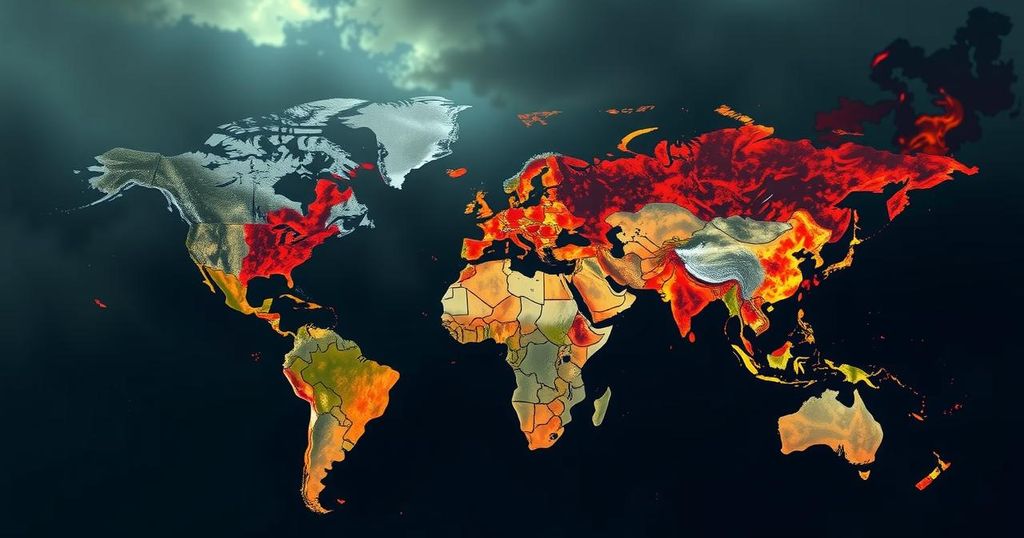This article explores the duality of Armageddon as both apocalyptic warfare and a critical response to global warming. It emphasizes the moral duty of humanity to address climate change, supported by religious teachings that advocate stewardship of the Earth. The urgency of collective action is highlighted, along with the sociopolitical implications of environmental degradation, ultimately framing the dialogue within a prophetic vision of peace and cooperation among faiths.
The term “Armageddon” is predominantly associated with apocalyptic warfare, yet it also encompasses broader existential threats such as global warming. While the word is biblically referenced only in the New Testament, Revelation implies an urgent call for collective stewardship against environmental degradation. Current climate research underscores the potential consequences of even a slight increase in global temperatures, demonstrating that natural disasters, loss of marine life, and social inequalities are exacerbated by climate change. Moreover, the links between environmental upheaval and societal instability necessitate a unified response across faiths, urging humanity to embrace their sacred duties as caretakers of the Earth.
Europe is experiencing unprecedented warming, with research showing dire forecasts if carbon emissions continue unchecked. This can lead to sea-level rise, threatening millions globally, while rising temperatures intensify the risks of extreme weather, wildfires, and health crises. Studies highlight that the poorest populations are disproportionately affected by climate-induced disasters, drawing attention to the stark inequities in emissions and resource distribution. Simultaneously, the regression of democratic institutions globally highlights the societal challenges interwoven with these environmental crises.
Scriptural traditions from Judaism, Christianity, and Islam present apocalyptic beliefs that connect eschatological events with human actions towards the planet. Many religious teachings insinuate a moral obligation to care for creation, prompting followers to reflect on their roles in fostering environmental justice. However, if collective efforts to combat climate change fail, human history suggests that cataclysmic events may serve as precursors to the much-anticipated Messianic Age, where transformative peace is envisioned.
As global temperatures continue to rise, international collaboration to combat climate change must be prioritized, transcending religious and cultural barriers. The ideals espoused in prophetic literature — including the visions of peace from Micah and Isaiah — underscore an interfaith approach wherein mutual respect and cooperation can pave the way for a harmonious existence. Achieving these aspirations requires a communal commitment to stewardship of the Earth and could ultimately lead to the fulfillment of the Messianic Age amidst the ongoing trials and tribulations of our times.
The discourse around Armageddon traditionally conjures images of warfare drawn from religious texts; however, it is increasingly related to environmental crises. The potential impact of climate change represents an Armageddon of sorts, compelling humanity to unite in addressing the pressing danger posed by global warming. The increasing evidence of environmental degradation and socio-economic disparities highlights the urgent need for an intersectional approach that weaves together scientific understanding and moral accountability drawn from faith traditions.
In summary, the modern manifestation of Armageddon extends beyond mere conflict and encompasses the grave threat of climate change. All faith traditions call upon humanity to act as responsible stewards of creation. The impending challenges due to rising temperatures necessitate collective action, allowing for a hopeful transition towards a Messianic Age, fulfilling divine prophecies of peace and cooperation. The urgent call to action remains not just a spiritual endeavor, but a crucial necessity for the survival of our planet and future generations.
Original Source: www.eurasiareview.com






